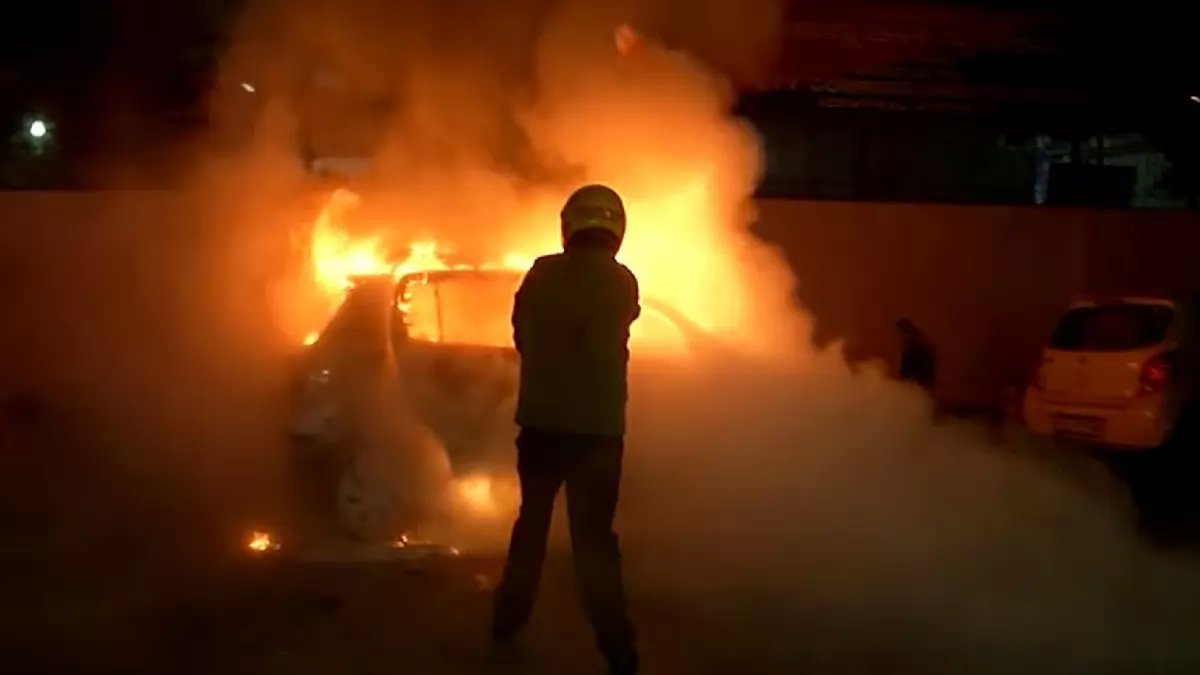
ANI File
New Delhi: With Diwali just around the corner, the air is already filled with the sound of firecrackers. While the joy of bursting crackers is widespread, it brings along the potential for mishaps. Although the Supreme ourt has banned the bursting of crackers throughout the nation as the festivity drapes Indians ahead of Diwali. It is crucial to understand that the people are not sensitised enough and are boun to burst cracker despite the ban imposedby th apex court.
One significant concern is the risk of firecrackers causing damage to your car. Every year, unfortunate incidents of car fires occur across the country. To ensure a safe and worry-free Diwali, here are three crucial tips to safeguard your vehicle.
In the next 7 to 10 days leading up to Diwali, avoid covering your car. Many cases of car fires stem from the use of car covers, which are often thin and susceptible to catching fire from even a small spark. To minimize this risk, store the car cover inside the trunk temporarily. Additionally, keep a bucket filled with water near the car for added precaution.
If you plan to take your car for a drive during the festive season, ensure that the windows are kept closed. This precautionary measure prevents sparks or rockets from firecrackers inadvertently entering the car. Closed windows not only protect the car but also enhance safety while driving, minimizing the risk of accidents.
Most car fire incidents during Diwali occur in open spaces. To mitigate this risk, try to park your car under a shed, roof, or within designated parking spaces. If open parking is unavoidable, actively discourage people from bursting crackers in the vicinity. This proactive step can significantly reduce the chances of fire-related mishaps.





Copyright © 2025 Top Indian News
